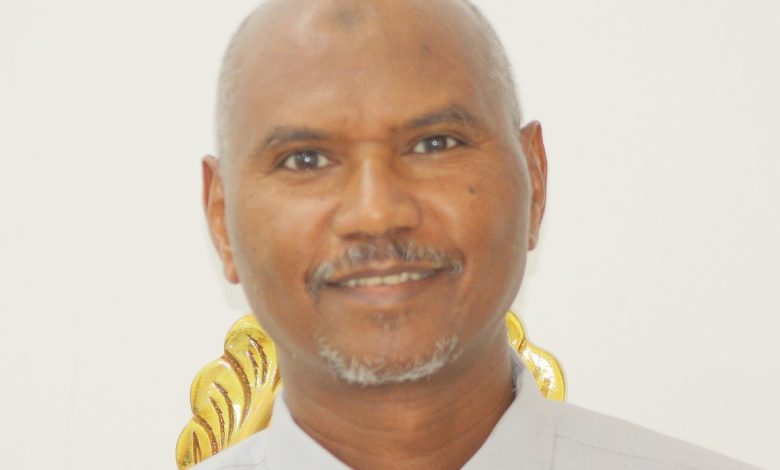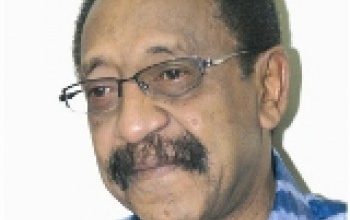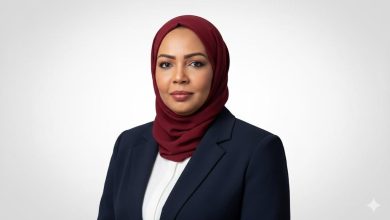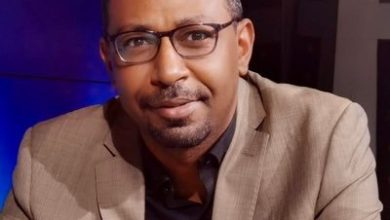Post-war Sudan (5)…Reconstructing Society and Life

By: Al-Sawi Youssuf
Sudanese society has been exposed to violent tremors and earthquakes, not only during the war, but throughout the past few years. The war increased the size and depth of this destruction to become more violent, deeper, and more horrific. Therefore, rebuilding society and restoring normal life, Sudanese life, is more important, in my opinion, than rebuilding buildings, facilities, and factories. Sudan was Sudan, and a distinct society, even before the construction of these facilities and factories. Some people talk about a golden age, the loss of which some people cry and nostalgia for, in the sixties and seventies, for example, and it is certain that Sudan at that time had very little infrastructure and facilities, and therefore the nostalgia is for the system of life and society, and not for buildings and edifices.
I believe that what caused Sudan to lose these brilliant societal advantages was the childish political conflict that was fueled by some rebellious forces that were at the behest of the outside, with or without their knowledge, and of course fueled by the external forces that wanted to change the country and bring it into its cultural and ideological mold, so that it would be easier for them to plunder its people, its resources, and its future. This increased explosively with the introduction of modern social media and the revolution of wireless communications and the Internet. The spread of education and the increase in economic and political aspirations also contributed to exacerbating the problem, with a decline in public awareness and an independent critical mind. This seems contradictory, but it is not so. Education and limited, good-quality media remain much better than the spread of popular trends (trends) in the media it leads to. The righteous, the immoral, the scholar, and the ignorant, and of course the largest and most numerous category is the category of the vulgar, the savage, the ignorant, and those with suspicious agendas. Recruiting and mobilizing the herd has now become much easier for everyone who wants to serve their agenda and interests, even if it is a destructive agenda and even if it harms the herd itself. It is enough, for example, for organized campaigns to emerge in the media calling for freedom, and some fools cling to them, not understanding who and what is behind the call, which in reality contains a call for dissolution, contempt for religion and religiosity, the institution of the family and parents, order and law, and morals and societal norms. It is enough for the flock to be mobilized around chants of civility and democracy, for example, and what is really intended is to impose the control of some party, an oppressive military one, as in the case of the Janjaweed militia, or a foreigner seeking to occupy the country and control its decision-making, sovereignty, and resources, and even displace its people and replace them with herds of ignorant creatures obedient to their occupying masters. There are many other misleading slogans that are intended to dismantle the bonds of society and incite them to hate each other and fight each other.
In addition to political solutions to real conflicts, those that call for redress of grievances, good management of diversity, and governing the country in a way that involves and satisfies all its people, and that attempts to properly manage resources, distribute services, etc., we need effective solutions to the problem of hatred and negative mobilization that has taken control of a large sector of young people, especially those Who don’t even know what they’re talking about. Some people think that the government has a money printing press, so it has infinite money and must give each one of them everything they want in terms of millions, real estate, palaces, cars, and positions, just as it gave others! They forget that the government itself is nothing but a few individuals who run the country on our behalf and that they and their government apparatus live dependent on us, and that we are the ones who work and produce, to acquire money, build palaces, and buy cars, and that these “others” were not given anything by the government, but rather they worked, worked hard, and were patient until they got what they got. This should not be a source of anger, envy, hatred, and rebellion, but rather it should be a source of inspiration and a model for all of us to work, produce, and raise our level of income until we reach what they reached, or even better.
We therefore need to reform the spirit of society, restore the culture of contentment and belonging, and build psychological and societal ties between people’s souls and consciences. Charity work, art, especially singing and music, education, sports, and media such as radio and television, mosques and private homes, and some tribal and civil institutions, and even civil service, trade and exchange, have remained the ties that bring people together, unite their consciences, draw them to each other, and even work to introduce each other to each other. They bring each other closer together, thus getting to know each other, getting to know each other, and even intermarriage. These same institutions are now required to return to playing larger roles, in a systematic, institutional and orchestrated manner, to repair the damaged and torn psychological and societal ties.
Art and culture:
Radio played a major role in spreading art, especially singing and music, throughout Sudan, but before the spread of radio and before the scope of broadcasting expanded, there were artistic trips and traveling concerts, when artists would tour the country to hold their concerts in theaters and cinemas, in Nyala, Gedaref, Karima, Kadugli and Malakal. And every city in Sudan, and theatrical troupes roamed between cities and governorates, then a stage came in which cassette tapes were the most widespread means of transmitting songs, praises, etc. Then came television, then satellite channels, and now all of these and other means are required to return to performing this role in an organized and coordinated manner, with directing and coordinating bodies among them, to ensure diversity and quality, and to invite a thousand flowers to bloom. It is also necessary to move beyond tradition and well-known repetition. It is not a matter of broadcasting the songs of so-and-so, but rather the artistic bands in the states, localities and cities must be activated, musical instruments must be provided, and they must be provided with trainers of great musicians, even on loan and visit. The circle of arts must also be expanded to include drawing, drawing, and painting, by opening art galleries, exhibitions, and museums in all cities, states, and localities, spreading the arts of sculpture, design, printing, architecture, and building industrial models, introducing the film industry, video, and photography, and the local drama industry in terms of writing, directing, and acting in addition to taking care of folk heritage, not only from the specific region but also from the rest of the country, such as dancing, singing, rituals, and local creative products.
Sports:
Sports have contributed greatly to integrating the country’s various communities into a harmonious and harmonious fabric. Some say that the two largest parties in the country are Al-Merrikh and Al-Hilal, and we need to revive sports activity at the level of the entire country, especially the states and localities, and create sports leagues, competitions that are more comprehensive than the traditional league. It is very important to stimulate the practice of sports other than football, which has taken over the entire sports scene, and despite its popularity and the spread of its practice, it is not the only one and not even the best. There are peoples such as billionaire India and its neighbor Pakistan, where cricket prevails, and in America comes basketball and soccer. American football is at the forefront, while floor hockey prevails in Australia, and ice hockey in Canada and Scandinavia, as examples. We must encourage young people to practice running sports, tennis, volleyball, and others, because they are simply available and less expensive and can be practiced in every village and team, even if the number of players does not reach 22 as in football. Stadiums for these sports must also be built and their equipment provided. Providing trainers in various fields. School courses also represented a good window for acquaintance and meeting between young people and students from different states, and it is better to continue with them in all seriousness, while adding other types of local, state and national youth competitions and competitions to include sectors other than high school students, such as university students, public service employees and police, army and reserve soldiers. And others.
Youths:
Young people need special care and special institutions. In addition to operating and financing institutions, project incubators, and entrepreneurs, all young people need institutional care from those areas that we mentioned in the previous paragraphs, such as various sports stadiums, which include all games and activities, including athletics (running, wrestling, judo, and karate). etc.), and various ball games (volleyball, basket, tennis, foot) and swimming. They need cultural and artistic clubs that allow them to train and practice music, singing, drawing, coloring, photography, producing short and cinematic videos, drama works, the arts of literary writing (poetry, stories, etc.), and journalistic, scientific and creative writing. . Such institutions can also include participation and encouragement to transform artistic activities and hobbies into profitable businesses, such as the participation of musicians in public concerts, the sale of paintings in art exhibitions, the design and photography of advertisements and educational materials, and the participation of athletes in national, regional and then international competitions. Young people also need practical and theoretical training centers to train them in various life skills that develop their knowledge and abilities, and make them more prepared to contribute positively to the local and global labor market, or to improve their lives in various aspects. Young people need courses on public administration and policies, especially regarding the work of state agencies at the district committee and local/municipal council levels, basics of economics and law, state structures, personal and family finance management, creation and management of small private enterprises, small and microfinance systems, and how to Formation and management of work teams, teamwork, and management basics including financial management, production, supply, human resources, etc. Courses in the field of technology, especially computers, the Internet, common office applications, traffic laws, driving cars, etc. There is no harm in having an explanation of political concepts such as the types of political systems, the functions of the state, the history of its establishment, parties, democracy, systems of representation, types of political elites, and others.
Mosques, khalwas, and homes for believing women:
Mosques and khalwas have a great role in social peace, integration, assimilation, and community cohesion. In them, people from all walks of life, gender, and color gather. In them, rituals are held and sacred religious sermons are presented. The preacher issues fatwas according to the words of God and His Messenger, may God bless him and grant him peace, and repeats his sermon weekly, in addition to lessons. And other lectures, and in the privates, students gather from all parts of the country and from some other countries, united by one belief and distinguished by their reading of the Qur’an, not by their tribes, races, or regions. But on the other hand, mosques are dangerous if they are misused to serve partisan and sectarian agendas and purposes. We have seen some mosques devoting all their sermons and lessons to spreading hatred, cursing other sects and paths, declaring Muslims as infidels and cursing them, and some of them are keen to differ from the Muslim community in their prayers, timings, rituals and everything else. Instead of serving one nation, it becomes a tool for destruction and division and a source of conflicts that may lead to violence. It is the duty of the authorities to unite the imams on a comprehensive, moderate doctrine upon which there is consensus and agreement, including setting the times for the call to prayer and prayers in each city according to the approved calendar, and the method of using loudspeakers. Perhaps we will be guided by Saudi Arabia, where the relevant ministry determines the times for raising the call to prayer and the times for holding prayers. And even the topics of the Friday sermon for all the mosques in their country. The authorities there prohibit the use of external loudspeakers except for the call to prayer, i.e. the call to prayer and the iqamah (start of prayer). As for the prayer itself and the lessons, they are carried out using the loudspeakers inside the mosque only, so as not to disturb the mosques among themselves and those praying in other places or in their homes. One of the brothers told me that he was impressed and happy with the situation in the Emirates, where the call to prayer is unified and the sermon is unified. I told him that because the Emirates is a country with an oppressive monarchy led by a king with the rank of first lieutenant general. There is no place in it for the arguments of the mob and their interference in everything, and the authorities are obeyed and feared. There is no place in it for chanting against the state and against the army, which is the chanting and movement that it finances, incites and arms in our country! The authorities in our country must pay attention to these mosques and control their speech and sermons, in a way that does not incite hatred, spread fanaticism, and incite violence and conflicts.



